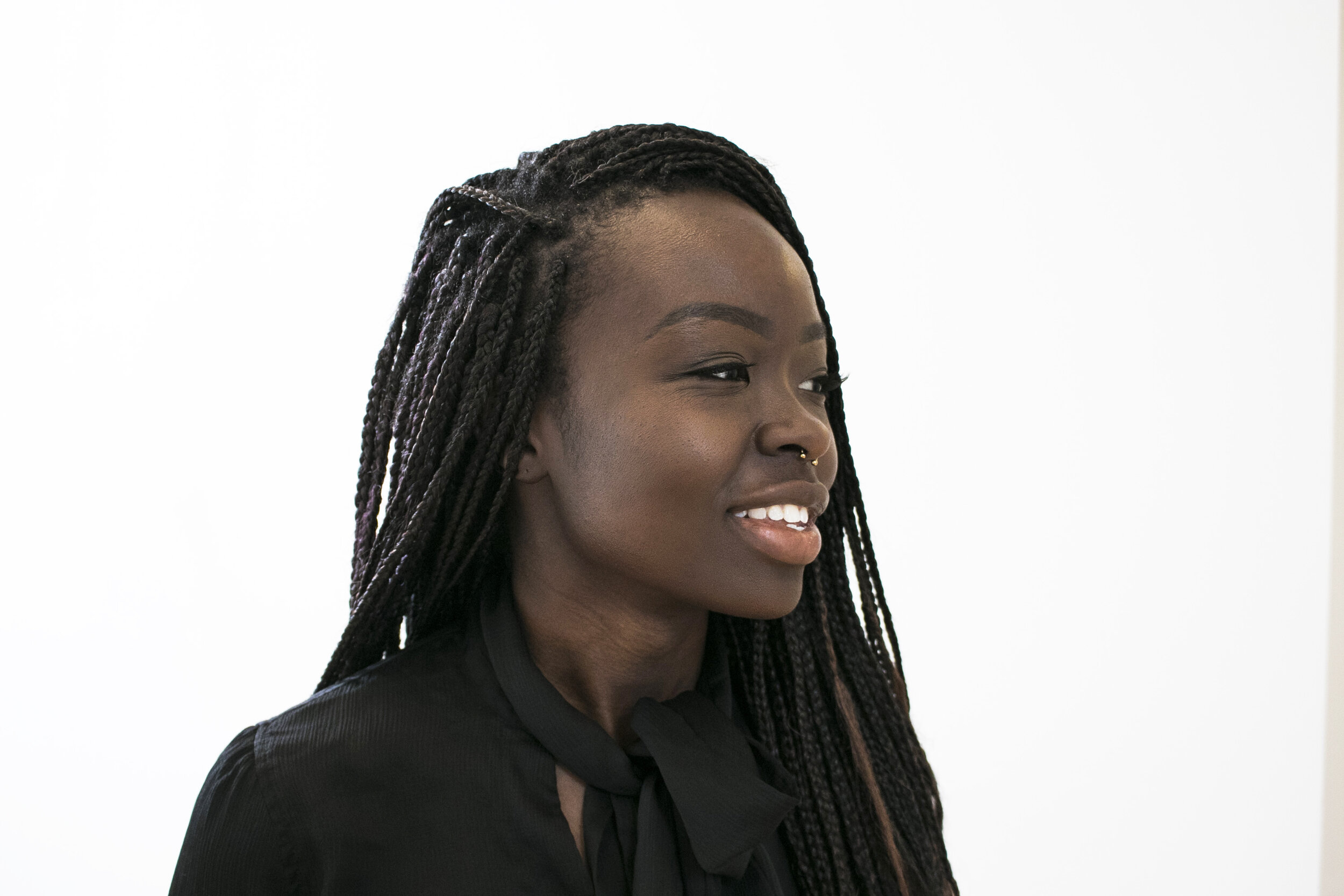Dear Dark Women, We’re Beautiful, Too
This essay is part of our “What Is A Woman?” series in tandem with our brand new podcast. This season, our community is exploring the question, “What is beauty?”
When I was asked to answer the question, “What is beauty?” I knew I had to write a love letter to all my fellow dark-skinned women. To the girls who’ve been called names over black skin that’s “too black” not only by those outside of our race, but by those within it.
We’re underappreciated and underrepresented in the media. Many people in this world cherish lighter hues, so if you haven’t heard it recently, you’re gorgeous. You’re melanin rich and it’s a gift.
Focus on making yours bulletproof. If you’re feeling bold, share a friendly little reminder that they’re upholding good ol‘ racism.
I never really considered myself especially dark. As a kid, I knew I was to check the “black” box on state assessments. I was fully aware of black people with skin lighter than mine, white people, Hispanic people, olive skin tones, tan skin tones. Summers would come and go, and I never thought about what the sun did to my skin. Sunburns weren’t my issue; I didn’t have to worry about the amount of time I spent under the rays. Soccer games, pool days, I lavished.
It wasn’t until my family moved to Florida that I started hearing people make a fuss over how dark they thought I was. In high school, my flag football teammates – both black and white – gave me the uninvited nickname of 11:59 p.m. Sunscreen was tossed at me before games. They assumed I must not want to get any darker. Jokes were thrown around incessantly. Only, I didn’t laugh
along, and felt annoyed to my core. I pondered: Why they were so obsessed with my skin? What’s wrong with being dark?
Boys in school joked that they would never have children with dark-skinned girls. My black friends sometimes ditched beach days because they needed to stay out of the sun; they didn’t want to get any darker. If they were lighter than me, what were they saying about how I looked? Self-consciousness crept in – as if I needed anything more to diminish my confidence as a teenager.
It didn’t help that these notions were echoed in the media. I started noticing that in popular movies and TV shows, the “token black” character was almost never my shade, but lighter on the “spectrum of blackness.” Mainstream media doesn’t cater much to us black folks. When it does, it’s usually using light-skinned, ’fro-free versions of us. It started clicking. I thought back to an episode of “Tyra” which featured black women who bleached their skin, as well as their children’s. I felt sad as I watched. Why did anyone feel the need to go to that dramatic length to change the shade of their skin? Blatant racism may not be what it was in our nation’s past, but many forms of it ran rampant while those women grew up, and still does today. And there, it clicked. They grew up being teased like I was, subconsciously taking notes from peers and magazines that whiteness is synonymous with beauty.
Dark girls, don’t allow anyone’s words about your appearance trouble you. Not even in the slightest way. Whether you hear it from your mother, your boss, or the well-intentioned stranger at the mall, I hope it rolls off your back like a marble on wood.
White or black, we have grown up in the residuals of a time where white people were openly considered smarter, more valuable, and more attractive than people of color. Those messages haven’t disappeared; they’ve only become camouflaged. I hadn’t thought often of how subtle racism affects our society as a whole. How microaggressions influence how we think about ourselves and others. How colorism is real and it’s a plague within the black community that’s addressed, but not often enough. The deeper I dug towards the roots of why my teammates were preoccupied with my skin and why mothers spent countless dollars to make their children lighter, the more I realized I couldn’t let others’ comments trouble me.
Self-love is sacred, vital. We’re outnumbered in parts of the world but please, revel in your uniqueness. Consider yourself a rare gem; beautiful precious stones, we are.

